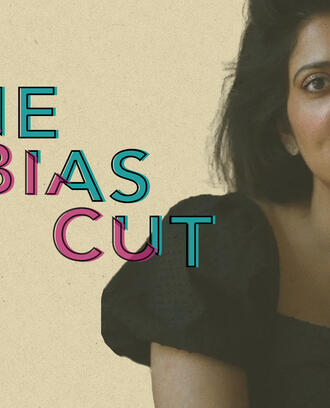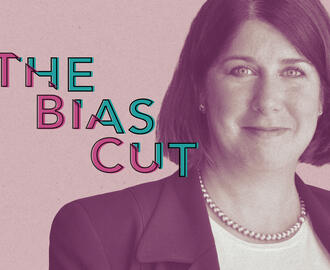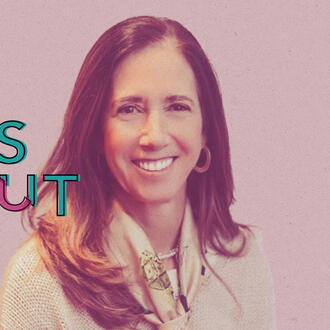Credit: Laura Wentzel
This executive coach wants you to have a mission statement for your career
By
A 2023 women’s leadership study from LeanIn.org and McKinsey & Co. found that American women held 40% of corporate management positions, and women continue to fight underrepresentation when it comes to board positions and CEO roles. They also face gender bias, harassment, and opposition to their management styles.
Here’s how one MIT Sloan alumna has pushed back on those statistics and used what she’s learned along the way to help those behind her.
Jessica Galica, MBA ’16, executive career and leadership coach. Previously, Galica was a consultant for Bain & Co. and a marketing strategist for Apple.
Given what you know now, what would you tell your younger self about being a woman in your industry?
Think big; assume there are no limits to your success. When you are just starting out in your career, it can be hard to dream big or see how to connect the dots forward. Time gives you the gift of seeing that those dots will connect one day and most likely you will achieve more than you thought possible. I would encourage my younger self, and all women, to have more belief in their creativity, resourcefulness, and ability to achieve their goals. When it comes to your career and life, don't let your own self be the thing you are fighting the most.
Can you give an example of a time you’ve experienced or witnessed gender bias? How did it affect you professionally? What impact did it have on your job?
The most overt gender bias I have experienced in my career is pay discrimination, when I was offered less compensation for the same role as a male peer. I lost trust in my manager and the organization, and my motivation took a hit. However, I chose to stay in the role because I didn't want to make a major transition at that time in my life. These are the difficult tradeoffs that women are forced to make. It’s important to acknowledge that I navigate my career with significant privilege. Women who belong to other marginalized communities face a disproportionately higher “cost” simply to exist in corporate America.
What is the most difficult lesson you’ve learned in your professional life? In what unexpected ways did you grow from it?
I had to learn that it's not enough to put your head down and "do the job" and expect to see your career take off. You must also develop a strong professional brand and advocate for yourself within your organization. This political or evangelization work can feel intimidating or uncomfortable — and as a result, tempting to overlook — but it is so important. I also had to learn that it's helpful to develop a long-term career perspective. Ideally you develop a vision not only for the immediate next step in your career, but also the second and third steps that you want to take. When you have a long-term vision, it's easier to identify the incremental steps that you need to take, and it's also easier to feel more committed and confident in your career choices because you understand how they fit in to your big picture goals.
What’s one specific way you tend to your well-being, and how do you encourage wellbeing among your staff?
I like to shine a light on the supports I have in my life: full-time paid childcare, support from nearby family, a dual-income and dual-caregiving household, and investments in career and business coaches to support my growth and my sanity. In addition to paid support, I am working on asserting my needs and demands more confidently. Women are too often conditioned to be in service of others. I am reconditioning myself to prioritize my own needs and articulate what I need without guilt or shame and before I reach burnout.
For teams I have led, I encourage well-being by modeling it. I confidently take my full PTO and truly (and visibly) disconnect. I don't require explanations for vacation requests. I limit communication with my team outside of working hours. I trust my team to be autonomous and productive and whole people with rich lives outside of work. As a leader the best thing I can do is walk the walk.
What’s one skill or behavior women can adopt to make their career path more successful and more manageable?
As a coach, I encourage the women I work with to take a "strategic planning" approach to their career and treat it like they are running a business — their career business. In the business world we are used to strategic planning activities like setting a mission or objective statement, defining annual goals and objectives, and convening for quarterly reviews to track progress. However, very few women apply these tools and tactics to manage their own career. Do you have a mission statement for your career? Do you commit to 1-2 career goals every year? Do you block time on your calendar to review and track against those goals? For many women, the answer is no. The result is that women often feel like their careers are reactively happening to them and they consistently feel unsure if they are "doing it right." When you take a strategic planning lens to your career, you have clarity and greater control over your success.
If you could snap your fingers and change one thing about workplaces, societal norms, or public policies that would most benefit women in the workforce, what would it be?
Affordable care! Affordable care would provide massive benefits to advancing women in the workforce. Women continue to take on a disproportionate amount of caregiving, whether as parents or as caretakers for aging parents and family members. The absence of affordable care, paired with the disproportionate caregiving burden, means that millions of women are forced to make suboptimal tradeoffs and decisions between their career pursuits and their caregiving burdens. Affordable care would give so many women more choice and control over their career trajectory.



